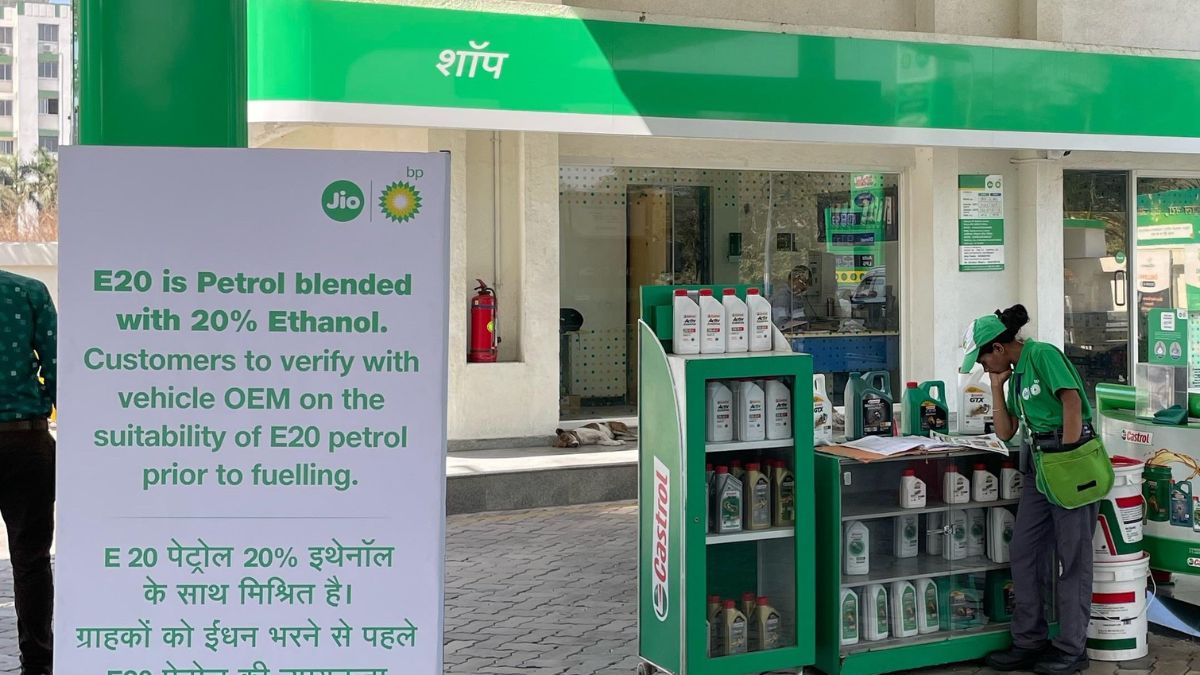Currently, most of the fuel stations are providing petrol up to 15 percent ethanol blends. Many refineries have started upgrading to E20 petrol already.
Ethanol in fuel, particularly petrol, has been trending on the internet for a few days. Availability of E20 (20 percent ethanol blended) petrol has risen to a great extent in fuel refilling stations across the country. However, this has led to many complications at the ground level.
Already the upgradation of oil refineries for 20 percent ethanol blending has proved to be a costly exercise and now ethanol-blended petrol has started showing its effects on vehicles. Several car owners have reported issues such as loss in vehicle pull and drop in fuel efficiency. This has raised many concerns over the impact of ethanol in a vehicle’s performance.
Although modern engines are equipped to handle up to E85 (85% ethanol blend) petrol, the recent cases of loss in power and mileage can pose multiple challenges for OEMs as well as consumers. Here’s one such example where a Kia owner reported that his car used to return an average fuel efficiency of 10-11 kmpl with 0% ethanol blending)in congested city driving conditions. This has dropped to 7-7.5 kmpl with 15% ethanol blending. Therefore, effective petrol used per km was 95ml earlier which is now 117ml.
Here’s a quick look at all positive and negative impacts that could be expected from the prolonged use of ethanol in engines.
Ethanol-blended petrol: Positive Impacts
- Reduced Greenhouse Gas Emissions: Ethanol is an oxygenate, promoting more complete combustion. This results in reduced carbon monoxide (CO), hydrocarbons (HC), and particulate emissions.
- Higher Octane Rating: Ethanol has a higher octane number than gasoline, helping prevent engine knock or pre-detonation. This ideally enhances engine performance when tuned appropriately.
- Renewable & Sustainable Source: Ethanol is made from biomass like sugarcane, corn, or other plant matter. This reduces dependence on fossil fuels.
- Cooler Combustion Temperatures: Ethanol absorbs heat during vaporisation, thus reducing engine temperature and risk of knocking in high-performance engines.
Ethanol-blended petrol: Negative Impacts
- Lower Energy Density: Ethanol contains less energy per litre than petrol. This can result in reduced fuel economy. Mileage may drop by 3–10% with E10 or E20 blends.
- Corrosion and Material Compatibility: Ethanol is hygroscopic (absorbs water) in nature which can lead to fuel tanks and pipes. It can also lead to degradation of rubber seals, plastic parts, and gaskets in older engines not designed for ethanol.
- Cold Start Issues: Ethanol vaporises poorly at low temperatures, leading to hard cold starts, especially in carbureted engines.
- Fuel System Deposits and Clogging: Ethanol can loosen deposits in fuel systems, potentially clogging fuel filters or injectors initially.
- Phase Separation: In storage, ethanol can absorb moisture, leading to separation of ethanol-water mix from petrol. This can cause poor engine…
Disclaimer
We strive to uphold the highest ethical standards in all of our reporting and coverage. We 5guruayurveda.com want to be transparent with our readers about any potential conflicts of interest that may arise in our work. It’s possible that some of the investors we feature may have connections to other businesses, including competitors or companies we write about. However, we want to assure our readers that this will not have any impact on the integrity or impartiality of our reporting. We are committed to delivering accurate, unbiased news and information to our audience, and we will continue to uphold our ethics and principles in all of our work. Thank you for your trust and support.
Website Upgradation is going on. For any glitch kindly connect at 5guruayurveda.com


